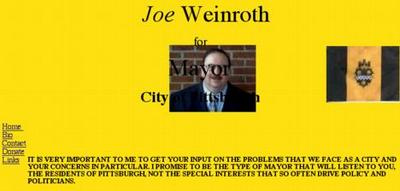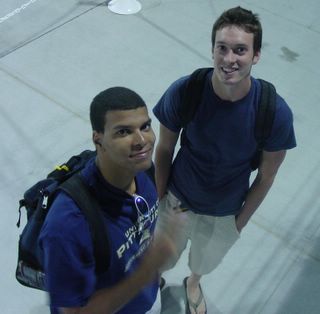Stephen Ronan's call to digital divide subscribers asked for a contact to the FCC about techie matters. A good case for a letter follows, should you have an extra moment in the next days. (before August 11)
In March, 2005, the FCC made an an innovative and helpful decision to open a new band of spectrum for community wireless folks and others to use: the 3650 to 3700 MHz band. The original plan was for an unlimited number of licensees throughout the country, with an easy online application process, no eligibility restrictions to speak of, and with all licensees having a mutual obligation to cooperate and avoid harmful interference to each other.
That band is currently used for Fixed Satellite Stations. That use would continue in and near those facilities which are mostly on the East and West Coasts. Exclusion zones around those facilities would prevent much usage nearby. For that reason, some coastal cities, such as New York, Philadelphia and the Bay Area would not benefit much if at all from the new rules, but the great majority of the geographic area of the country including rural areas would benefit. Many metropolitan areas (Albuquerque, Atlanta, Austin, Boston, Chicago, Cleveland, Columbus, Detroit,
Houston, Kansas City, Las Vegas, Milwaukee, New Orleans, Oklahoma City, Phoenix, Pittsburgh, San Antonio, and Tucson) would benefit.
A map on page 66 of the FCC's Order clarifies the areas that are
outside of the FSS exclusion areas.
The power limits and other aspects of that FCC decision would make it much easier for free and low-cost networks to be deployed that could reach greater distances, with radio signals carrying broadband Internet access through walls and ceilings and other
obstacles more effectively than low-power WiFi devices. More
detail here:
http://makeashorterlink.com/?N13563D8BSo far so good. Now the unfortunate turn of events that aims to hinder community access to technology elements. After the original FCC decision was issued, a period for opposing the decision opened and some corporate interests filed Requests for
Reconsideration. Nine parties have done so including Intel and Motorola.
The big boys are asking for severe restrictions on who can use the spectrum. Rather than opening it for anyone to use, Motorola is requesting that the 50 MHz of spectrum be divided into two 25 MHz blocks with each auctioned off to the highest bidder.
Intel and a couple of others signed another petition calling for all that spectrum also to be divided among two exclusive licensees in most major metropolitan areas.
The Wireless Communications Association called for half the 50 MHz of spectrum to be made available to just one exclusive licensee in each rural and urban area that isn't already excluded by the presence of Fixed Satellite Stations.
The filing of the Petitions for Reconsideration and their availability for review was published in the Federal Register last week, setting off a fifteen day period for opposition to the Petitions for Reconsideration to be filed. Those comments are due
by August 11 (there still may be an opportunity to file comments "ex parte" after that but it's better for them to arrive before the deadline if possible).
Heartland citizens and advocates in the U.S. should consider filing a brief comment thanking the FCC for their original decision to open up the spectrum for nonprofit community groups and all others to share while committing to not interfere with each other's networks. In your comment opposing the attempt to instead have much or all of the spectrum auctioned off to the highest bidder.
You can review previous comments that have been filed, including the Petitions for Reconsideration at the FCC web site by entering
04-151 in the search bar in the top left corner at
www.fcc.gov.
It is easy to file a comment. Just enter 04-151 in the proceeding number here:
http://gullfoss2.fcc.gov/prod/ecfs/upload_v2.cgi
. Complete the brief form, selecting
Reply to Petition for Reconsideration in the drop down box at the bottom, and then
either upload your comment or type it into the text entry box.
Submit a couple of paragraphs identifying your and/or your organization's interest in equitable access to technology, thanking the FCC for opening up the spectrum for uses that can bridge the digital divide. Then oppose the idea that the rights to the spectrum would instead be auctioned to the highest bidder would be a huge help.










